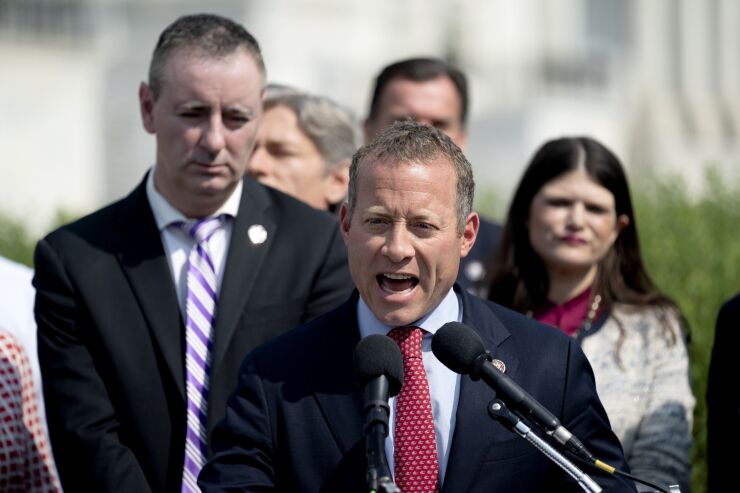A group of federal lawmakers from New York and New Jersey have formed a caucus to force the Metropolitan Transportation Authority to hit the brakes on its first-in-the-nation congestion pricing plan.
The governors of the neighboring states are also weighing in as the Biden administration decides whether to approve the plan.
House Representatives Josh Gottheimer, D-N.J., Nicole Malliotakis, R-N.Y., Mike Lawler, R-N.Y., and Tom Kean, Jr., R-N.J., last week formed the Congressional Anti-Congestion Tax Caucus, dedicated to opposing the MTA's Central Business District Tolling Program, also known as a congestion pricing plan.

The group wants the Federal Highway Administration, which still needs to approve the plan, to undertake a more thorough environmental review, which would likely mean a years-long delay.
The caucus is also calling for the U.S. Department of Transportation to audit the MTA's use of federal funds over the last five years and for the agency's leaders to testify before Congress.
"The MTA has been so woefully mismanaged that they're desperately looking anywhere for cash to fill the gigantic hole they dug for themselves," Gottheimer, who also introduced a bill opposing the tolls, said at a press conference last week. "Their target: hardworking commuters from New Jersey and New York."
Passed in 2019, the MTA's
The FHWA's timeline for a decision remains unclear. MTA recently announced that the assumed implementation
While a rising number of U.S. states have implemented High-Occupancy Vehicle lanes with dynamic tolls depending on the level of traffic, New York City would be the first to charge all motorists for driving into its core. The cities of London and Singapore have similar plans.
The MTA is one of the largest issuers in the muni market, with roughly $41 billion of outstanding bonds. Like all mass transit agencies, it is suffering from a drop in post-pandemic ridership. The congestion tax is projected to generate $1 billion a year. The agency
Advocates say congestion pricing would reduce gridlock during peak traffic times and greenhouse gas emissions as well as generate badly needed money for the cash-strapped MTA.
"It was just
Opponents say the plan is too costly for many commuters, doesn't benefit New Jersey and may increase congestion outside New York.
In January, Gottheimer and Lawler introduced the
New York Gov. Kathy Hochul defends the plan as good for the environment and the fiscal strength of the MTA. Longtime critic New Jersey Gov. Phil Murphy has asked the Biden administration to slow down implementation.
"The last thing it seems to me you want to do is to give people some other excuse to not be in Manhattan," Murphy said on a local radio show Sunday.





